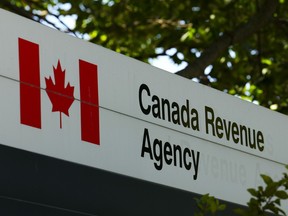This is good news for aspiring condo buyers, who now have larger inventories to choose from. But it’s trouble for those trying to sell their condo, who may have to either significantly reduce their asking price or, in a worst-case scenario, delist their property until the sellers’ market becomes more favourable.
Growing numbers of condo owners are choosing the latter option. But what sort of consequences may they face for that decision?
Will you have to reimburse your realtor for their expenses?
Rick Kedzior, president of the Ontario Real Estate Association, says that province’s Trust in Real Estate Services Act is of great help to sellers in this scenario, thanks to the mandatory requirements it places upon agents. B.C., Alberta and Manitoba have all introduced or updated similar laws to Ontario’s in recent years.
“When an agent takes on a listing, they supply the seller with a schedule of the services that are going to be provided, and that schedule also specifies who will be paying for what,” Kedzior says. “From an agent’s perspective, staging and any other ancillary services they’re providing is the cost of doing business. Another example is any costs associated with an MLS listing. I’ve never seen a situation where the seller gets stuck with having to pay for that.”
The only (and rare) situation when the seller could get stuck with a bill would be spelled out in the listing agreement. “When you have the meeting to list your home, they may say, we’re going to provide staging or paint the house for you, or some things like that,” says Ahren Spylo, a spylorealty.com broker with Keller Williams Realty in Waterloo, Ont. “And if you decide to take the condo off the market, then they may like to settle whatever that cost is. But that would have to be predetermined.” Make sure you understand the Agreement of Purchase and Sale when you sign it.
Are there less tangible costs to delisting a condo?
There can be a stigma associated with a property that gets pulled off the market without selling. “So you put it on the market for, say, 90 days—that’s kind of the norm—and then you take it off the market. There would be, from an agent’s perspective, a question of ‘What happened to that listing?’ ” Kedzior says. But it’s hard to quantify.
There can, of course, be a very real opportunity cost if you end up changing your life plans as a result of the non-sale. It could interfere with plans to accept a new job in a different community, or force you to pay for upgrades needed to make the property suitable for renting out or accommodating a growing family.





















Discussion about this post